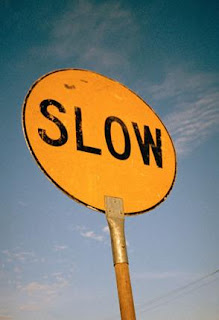 Reflection on this Sunday's gospel:
Reflection on this Sunday's gospel:
Dives and LazarusLuke 16:19-31A voice from the other sideWhat I like most about this place
is that it’s always
just the right temperature.
That other place was so hot at times;
the sun would bake the earth to dust,
and the wind would lift it
and lash it into our faces
like it were punishing us.
Punishing us for being poor;
or maybe, just for being.
But there’s none of that here. It’s perfect.
And the light.
How can I describe the light to you?
It’s like that golden hour after dawn, or before dusk
when shadows are long
and the sun spreads its glow
across everything it touches, like spilt honey.
It reminds me of those evenings
when work was finally done
and we’d gather in that warm light;
sitting by the fire and sharing the little we had together.
Laughing, despite ourselves.
We had to laugh.
Sometimes it was all that kept away the tears.
It’s funny how some things stay with you.
Stronger than memories,
but less powerful somehow,
because here they can’t hurt you any more.
The hours of scraping a living off the land,
days of planting, picking and gathering –
well they’ve disappeared,
along with the sore back
and the calloused fingers that went with them.
I know that they happened,
but I can’t seem to recall much about them now.
But I remember my wife’s smile,
and the way she looked away from me shyly
when I first picked up the courage to talk to her.
I remember when we first made love
the evening we were married by the tribal elder;
sloping off to our tent like naughty children
with the laughing eyes of the villagers upon us.
And I remember our firstborn;
the wonder of seeing her thrust into the world;
a precious gift from God.
We passed her between us as if she were the first of her kind;
shockingly new.
And we loved her with everything we had within us.
But I remember too
the day the men came.
Men with strange speech
and odd clothes.
Smiling,
but never with their eyes,
I remember their shiny jewellery,
their expensive shoes,
and the way their eyes looked around them
even as they spoke to us.
Sizing up our people
scoping out the settlement.
I remember when the first of the trees fell,
and their machines started ripping up the landscape
we naïvely thought was ours.
“Making space for cattle” they said.
How many cattle do these rich people need?
How big are their bellies to need so much food?
Why should their hunger matter more than ours?
Why are their desires more important than our livelihood?
It’s easy now to see that I should have acted differently,
but an anger burned within me
that I couldn’t contain.
A rage for my people.
And for justice.
Without thinking I ran in front of one of the great machines
to make them stop this madness,
I heard you scream.
I felt you slip away.
And here I am.
There was no trial;
no media interest, of course.
We are the poor.
And our lives don’t count in that world.
All that happened was a sharp word from his boss
because this kind of thing isn’t good
for public relations.
The driver’s excuse?
He didn’t see me.
But he sees me now.
And I see him.
There he is,
Down there, across the chasm,
Along with all the others who in different ways at various times
Didn’t see.
Didn’t see the persecuted
Or the poor, or the lonely.
Didn’t see the beatings, or the bullying, or the exploitation.
Didn’t see what was blindingly obvious right under their noses;
or the plain wrong in what they were prepared to do
Didn’t see the process of cause and effect
which means that someone halfway across the world
can make one decision
and turn the lives of the poor upside-down.
And the irony is,
although they see us now,
the invisible ones they managed to ignore all their lives,
they still don’t see!
They ask for mercy, still blind to the fact that they showed none.
They seek help for their loved ones,
forgetting that their choices destroyed the lives of others.
They ask for someone to come back from the dead
so their family might believe,
when of course, someone already has come back from the dead,
and they didn’t pay a blind bit of notice to him.
It would be easy for me to be angry,
but somehow that emotion can’t exist here,
like fire can’t burn without oxygen.
Or maybe I could speak –
Send over a few words of comfort.
Because seeing them as they are now,
I bear them no malice.
But instead, I think I’ll keep silence and pray for mercy.
Because I already have
the only thing I ever wanted from these people.
To be seen.
 Yesterday we had a memorable Nativity Service @ St Hacket's. It's always a busy service here - we hold it in the hall, so 200 people is a tight squeeze! The kids did really well and we drew Right Christmas to a close by handing over a cheque for £8050 to the Gulshan Literacy Project. Three times what we'd planned.
Yesterday we had a memorable Nativity Service @ St Hacket's. It's always a busy service here - we hold it in the hall, so 200 people is a tight squeeze! The kids did really well and we drew Right Christmas to a close by handing over a cheque for £8050 to the Gulshan Literacy Project. Three times what we'd planned.



















